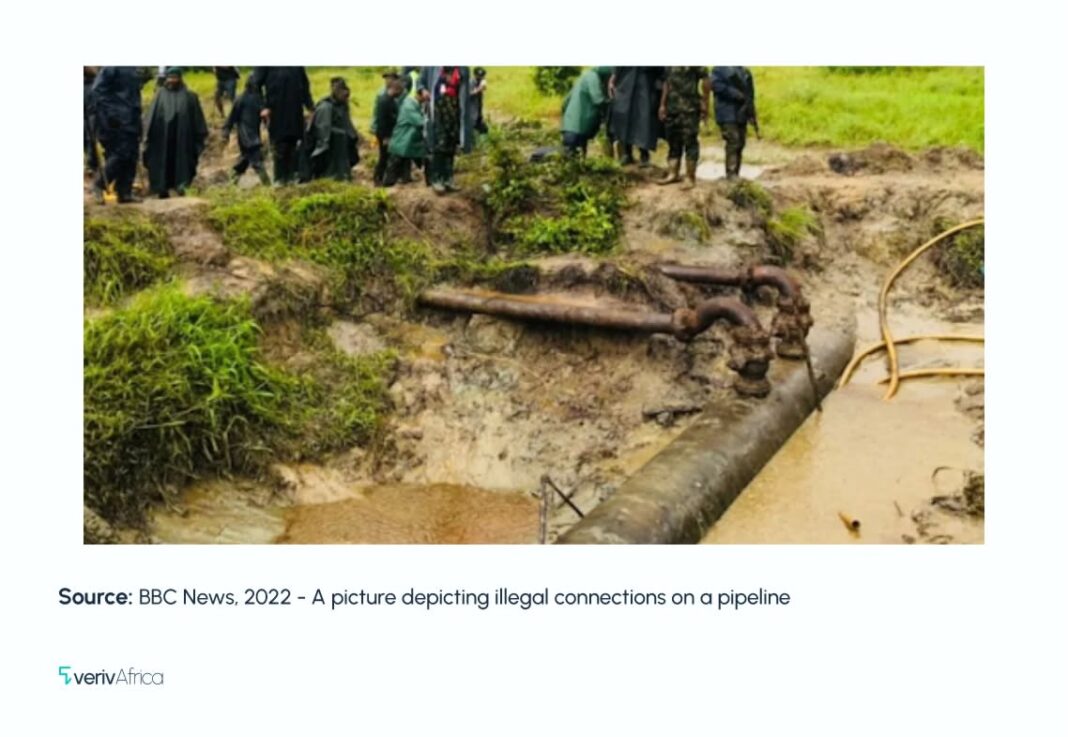A fresh report released by the Nigerian Upstream Petroleum Regulatory Commission (NUPRC), has revealed a damning gap in the country’s oil sector, pointing to the devastating impact of crude oil theft, as Nigeria losses hit ₦8.41 trillion ($5.61 billion), between 2021 and July 2025.
Within the period of five years, Nigeria lost 68.94 million barrels of crude oil to vandalism, with the crisis reaching its peak in 2021 when the country recorded almost half of the loss (37.6 million barrels).
Therefore, the losses have been growing since then, the report revealed. The Commission analysis showed 20.9 million barrels were lost in 2022, 4.3 million barrels in 2023, 4.1 million barrels in 2024, and 2.04 million barrels in 2025 between January and July.
Breaking down the losses, using Statista’s average Brent crude prices, the losses meant: $2.66 billion in the first year ($70.86 per barrel); $2.11 billion in the second year ($100.93 per barrel); $355.7 million in the third year ($82.49 per barrel); $330.3 million in the fourth year ($80.56 per barrel); and $146.5 million in the fifth year ($71.79 per barrel).
In what was termed as the significant improvement in 2025, the NUPRC said that the crude losses declined to an average of 9,600 barrels in a single day in July—the lowest level since 2009. The Commission attributed this laudable movement to reforms induced by the Petroleum Industry Act (PIA), which serves as the new surveillance technology, and stricter monitoring of illicit crude oil activities in the country.
Despite the recent progress, the cumulative financial damage is damning to the proper running of the country, especially as regards to the declining infrastructures.
Analysts have noted that the lost revenue could have saved Nigeria’s downturn infrastructures, fund approximately 56,000 health centres, while transforming 129,000 classrooms. It was added that the amount far exceeded the 2025 federal budgets for health and education sector combined.
“The country still needs an additional 400,000 bpd to reach the 2 million bpd target by December 2025. Losses of 9,600 bpd are still significant,” one of the analysts said according to PUNCH.
“Oil theft causes massive revenue losses and budget underperformance. It fuels currency devaluation and economic instability. It also discourages investment, since uncertainty over actual export volumes undermines confidence,” he explained.
Meanwhile, experts have also warned that while the reduction in theft is commendable, it does not fill the gap in the governance failures exposed by the losses. They argued that sustainable solutions require stronger law enforcement, full transparency, and systemic reforms to prevent a recurrence and subsequent issue.
For a country whose nothing less than 90–percent of its economy is reliant on oil exports, securing this revenue stream is critical for future developments.

